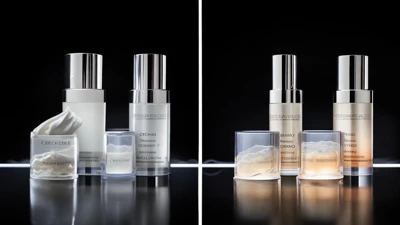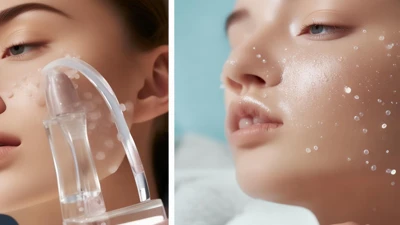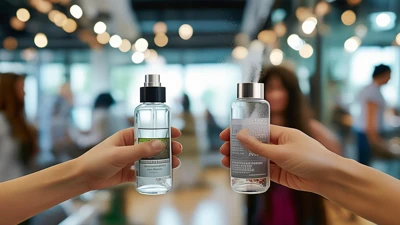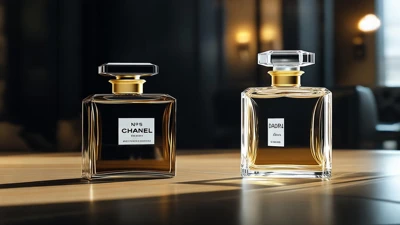
Which Oil is More Effective for Hair, Argan or Coconut?
The global hair care sector reached a valuation of over $80 billion in 2023. There is ongoing discussion about the role of natural oils in supporting hair health. Argan oil is well-loved. Coconut oil is also highly regarded. Both are among the most celebrated oils. The moisturizing, protective, and restorative properties of these oils are widely acknowledged. What sets them apart is how they are applied and the results that follow. This essay examines whether argan oil truly surpasses coconut oil in hair care through a multidimensional analysis of their chemical compositions, functional benefits, cultural relevance, and environmental impact, supported by scientific studies and anecdotal evidence.
What Are the Chemical Elements and Penetration Features?
Fatty Acid Profiles
Argan oil is extracted from the kernels of the Argania spinosa tree in Morocco. It has high levels of oleic acid and linoleic acid. These fats help improve the elasticity of hair. With approximately 350 mg of vitamin E per kilogram, it provides antioxidant benefits that protect hair from oxidative stress due to UV rays and environmental pollution.
Coconut oil is sourced from Cocos nucifera and comprises 45–53% lauric acid, which is known as a saturated fat with a low molecular weight. The triglyceride structure of lauric acid enables it to deeply penetrate the hair shaft, as shown in a 2003 study from the Journal of Cosmetic Science. According to researchers, coconut oil decreases protein loss in hair by 39% while washing. This is more effective than using mineral or sunflower oils.
Interaction with the structure of hair
Coconut oil's capacity to reach the cortex makes it a top choice for avoiding hair breakage. According to a 2015 study, coconut oil's ability to penetrate hair cuticles decreased hygral fatigue by 50% in chemically treated strands. The fatty acids in argan oil are large. They coat the hair cuticle and form a barrier but do not go deep inside. This is ideal for retaining moisture, yet less suitable for internal healing.
Capability to Moisturize and Improve Texture
Hydration Retention
Coconut oil acts as a sealant that keeps moisture inside the hair shaft. This makes it highly beneficial for those with dry or porous hair. In a 2020 Dermatologic Therapy trial, 120 people with chemically relaxed hair participated. Coconut oil was shown to cut breakage by 40% when compared to a placebo. One downside is that the thick texture can make fine hair both greasy and flat.
Because argan oil is light in consistency, it is versatile enough for all hair types, like fine and oily hair. As stated in the Journal of Cosmetic Dermatology, a 2019 study demonstrated that argan oil led to a 28% increase in hair shine and a 22% reduction in frizz among curly-haired individuals. Modern preferences favor weightless hydration, which is why its non-greasy finish is ideal.
Thermal Protection
Both oils offer heat protection. However, their performance varies. The saturated fats found in coconut oil can endure heat up to 350°F (177°C), as stated in a 2018 Cosmetics journal publication. Argan oil has a smoke point of 300°F (149°C) and provides moderate protection. It is excellent for post-styling treatments, smoothing cuticles, and enhancing gloss.
The Role of Scalp Care in Overall Well-being
Compounds with the ability to reduce swelling and kill bacteria
Dandruff and psoriasis are often caused by scalp inflammation. The high antioxidant levels in argan oil can help combat this inflammation effectively. Argan oil treatments reduced scalp irritation by 34%, according to a study conducted in 2017 and published in Clinical, Cosmetic, and Investigational Dermatology.
The antimicrobial action of lauric acid from coconut oil helps to combat Malassezia fungi, a common cause of dandruff. Research published in 2021 in the Journal of Drugs in Dermatology revealed that coconut oil achieved a 52% reduction in dandruff severity in four weeks. Users liked it more than ketoconazole shampoo.
Enhanced circulation supports stronger hair
Although neither oil directly stimulates follicles, the vitamin E in argan oil boosts scalp circulation, which indirectly aids hair growth. Coconut oil has been linked to reduced protein loss, and it might prolong the anagen phase. Still, the evidence is mostly anecdotal.
Environmental impacts and moral responsibilities
Sustainability and Production
It takes 35kg of fruit to make 1 liter of argan oil, and the process is very labor-intensive. With the support of UNESCO, cooperatives in Morocco like the Amal Cooperative are making rural women stronger. They are also pushing for tree planting campaigns. Coconut oil is cheaper, yet its association with monoculture farming in Southeast Asia has sparked concerns about deforestation and biodiversity loss.
Carbon Footprint
The carbon footprint of argan oil is lower due to its localized production in Morocco. With 2kg of CO2 per liter, it is lower than coconut oil, which has 3kg. Long-distance transport from tropical areas results in 5kg of CO2 emissions per liter.
Traditions and past occurrences
Traditional Uses
Berber communities have utilized argan oil for centuries to condition hair and treat the scalp. Tropical civilizations have long embraced coconut oil. Indian Ayurvedic practices valued it, and Polynesian communities revered it during hair ceremonies.
Modern Market Trends
The worldwide argan oil industry is valued at $2 billion. In 2023, the company hit 3 billion in sales, targeting premium skincare and haircare products. Coconut oil is the leading ingredient in mass-market products, with an annual consumption surpassing 3 million metric tons.
Insights Gained from Cases and User Journeys
Clinical Trials
In 2022, a study in the Journal of Applied Sciences looked at how argan and coconut oils compare for treating heat-damaged hair in 200 women. Coconut oil increased tensile strength by 31%. In comparison, argan oil raised manageability by 27%.
Anecdotal Evidence
The r/CurlyHair community recommends argan oil for bringing out curls without buildup. Coconut oil is instead preferred by those with straight hair looking for an effective overnight treatment.
Sharing Personal Thoughts and Preferences
If you have thick, curly hair like me, you'll find argan oil amazing. It smooths frizz and gives shine without heaviness. My hair benefits from coconut oil in pre-shampoo routines. The oil prevents protein loss significantly. My sister's fine hair makes her avoid coconut oil due to its greasy feel. She prefers using argan oil daily to keep her hair hydrated without weighing it down.
A Word From Beautyvs
There is no clear winner between argan oil and coconut oil. Their performance varies by hair type, climate, and what you're hoping to achieve. Coconut oil retains protein well. It also has antimicrobial benefits. This makes it ideal for damaged or chemically treated hair. People with fine hair can use argan oil. It has antioxidants and provides UV protection for the hair. When it comes to ethics, argan oil supports sustainable lifestyles. In terms of practicality, coconut oil wins with its affordability and versatility. Different oils have different benefits. Align these with individual hair care goals to make a choice.














